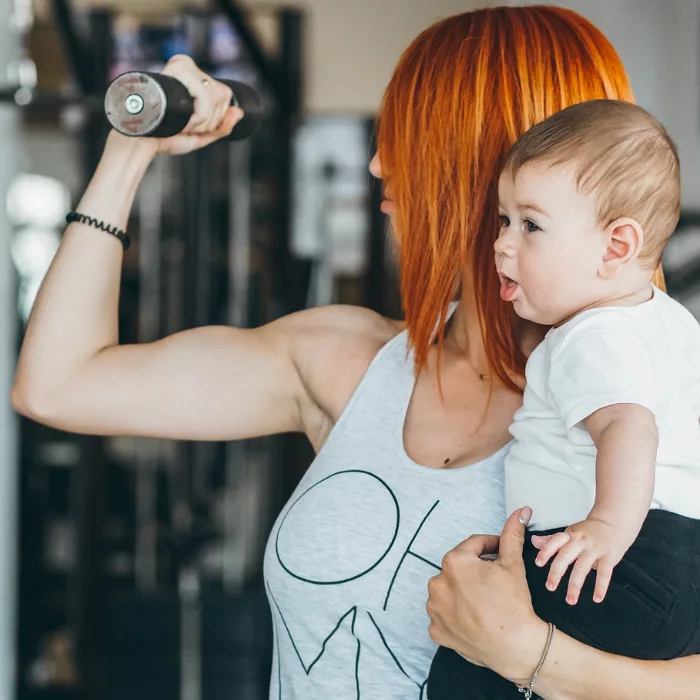
Anna Dima: The Anchor of Empowerment—Persistence in a Sea of Multiculturalism
Key Takeaways
Anna begun her maritime career as a naval architect and progressed through roles in logistics and safety within the oil and gas sector, facing and surmounting gender bias and industry hardships. Her persistence was further highlighted by her strategic pursuit of an MBA in Shipping and Logistics.
Anna’s multicultural background and global work history significantly advanced her leadership capabilities and problem-solving skills. Her ability to adapt and communicate effectively amongst diverse teams has been instrumental in her advocacy for gender equality and mentorship of women in her field.
With qualifications that span naval architecture, psychology, and industry-based certifications like BOSIET and HSE, Anna has crafted a leadership style that is both empathetic and communicative. This combination of skills supports her in addressing professional challenges with a comprehensive and integrative approach.
Her path in the maritime field was tough; it’s a world run mostly by men. But she was strong! Starting as a naval architect, she then moved on to logistics and safety in oil and gas. She fought against bias and bad weather. She got her MBA in Shipping and Logistics, joining tech-know-how with strategic thinking. Also, Anna likes Zumba; it helps her de-stress and manage her time. Growing up in different cultures taught Anna to be persistent and not hold on to the past. Now, on a new journey in psychology, Anna wants to help people balance old roles and new ones. Being a part of Global Woman makes Anna’s dreams bigger. Anna is also working to get Greek women involved, to help all women chase big dreams.
Your career has spanned multiple countries and diverse roles within the maritime industry. How have these international experiences influenced your approach to leadership and problem-solving in a male-dominated field like naval architecture and logistics?
Throughout these years, being part of diverse teams across different cultures has honed my adaptability and cross-cultural communication skills. The male-dominated environment has significantly shaped my approach. It has strengthened my ability to communicate assertively and advocate for my ideas, ensuring they receive the appropriate attention, my voice is heard, and my contribution is valued.
In some cases, in various countries, I have been fortunate to meet men who trusted me and provided opportunities for knowledge expansion (one of them was my colleague, who later became my husband) and instilled confidence in me, turning them into amazing collaborators and friends. However, in other cases and countries, I have been ignored, underestimated, and offended.
All these experiences have ignited a passion for mentoring and supporting other women in similar environments. They have driven me to overcome my limitations and commit to breaking down gender barriers.
Your background includes expertise in logistics, quality control, and safety management in the oil and gas sector. Could you share a significant challenge you’ve faced in ensuring safety and compliance during offshore operations, and how you overcame it?
One significant challenge I encountered many times was not only collaborating with a multicultural team and trying to earn trust and respect during meetings and operations, but also dealing with extreme climate conditions with temperatures ranging from -30 to +45 degrees Celsius.
On numerous occasions, I had to go on board or to the site, and the response was that they expected to meet a man, leading to reluctance in cooperating with my requests. For instance, I had to coordinate a multicultural team for the preparation of a vessel (barge) for the inclining experiment, a procedure to determine the vessel’s stability by inclining it from various angles and measuring its response.
The preparation involved ballasting operations where tanks are filled with seawater using portable pumps. The team of workers was ignoring my instructions, and the operation had to be completed before the onset of winter when the Caspian Sea freezes. In other instances, I was asked to accept a vessel even if it did not meet standard requirements, among other challenges.
To address these challenges, I found it necessary to assertively convey instructions, demonstrating confidence and a commitment to compliance with established regulations. Often, I felt frustrated, demoralized, or doubted my capabilities. In some cases, I had to raise my voice to make sure I was heard. Fortunately, I was lucky and blessed to meet wonderful people who helped me overcome these challenges by demonstrating trust and respect.
You hold an MBA in Shipping and Logistics, which is not a common combination with a naval architecture degree. How has this additional education empowered you in your career, particularly in roles involving procurement and tendering for vessels and services?
When I decided to pursue an MBA in shipping and logistics, I was already working in the logistics department of an oil and gas company. That experience significantly shaped my view of the shipping world.
Over time, I realized the value of going through the oil and gas field, despite the associated difficulties. This experience exposed me to many aspects beyond the technical realm, such as supply chain management, procurement, vessel management, tendering, and more.
The goal was to gain a broader perspective on vessels and their operations. This dual expertise allowed me to bridge the technical aspects with a more comprehensive operational and strategic understanding.
For example, when evaluating a vessel, it’s essential to consider not only its technical specifications, maintenance, and operation but also the planning and coordination of movements and goods storage. This broader knowledge has been invaluable in optimizing vessel performance and efficiency.

Your training and education extend beyond your primary field of study, including psychosocial disciplines and certifications like BOSIET and HSE. How have these diverse qualifications enhanced your professional capabilities, and do they influence your leadership style?
BOSIET, which stands for Basic Offshore Safety Induction and Emergency Training, is mandatory for anyone working in the field. It’s designed to provide essential knowledge and skills related to offshore travel by helicopter and work offshore, including safety induction, fire safety, basic firefighting, first aid, helicopter safety, and survival at sea. Health, safety, and the environment are non-negotiable in this line of work, so I had to complete this training. My foray into psychosocial disciplines came as a necessity to understand human nature and self-development.
Periods of mental overload, stressful environments, and personal challenges, such as my dismissal due to pregnancy, prompted me to delve into psychoanalysis and begin distant learning studies in psychosocial disciplines during my pregnancy. This was a pivotal point in my life, and my sister, a psychotherapist and family therapist, served as a source of inspiration. Combining these diverse fields has driven me toward more empathetic and effective communication. I see myself as a perpetual student, not only in psychosocial disciplines but also in life itself.
I’m still learning how to set boundaries to protect myself from exploitation and distress, particularly in highly competitive environments. I’ve learned to let go, recognizing that many people’s reactions are beyond my control and don’t reflect my worth. These studies have enhanced my leadership style, making me more empathetic and attuned to effective communication. I’ve come to understand that we should speak to people with empathy, as if they were children, because some never grow up; they simply become taller.
As a licensed Zumba instructor and someone with diverse cultural interests, such as reading, photography, and music, how do you balance your demanding professional responsibilities with your personal passions? Have these hobbies ever provided you with unique insights or perspectives that you’ve applied to your work?
Being a Zumba instructor, or simply engaging in exercise, has been a lifeline during stressful and challenging periods. Exercise has always been my remedy for managing demanding phases of life, both as a professional and a mother. I’ve been involved in sports since childhood, and it has helped me navigate difficulties as a child, adolescent, and adult.
Exercise has provided a healthy outlet for stress relief during demanding times. I vividly recall a period when my professional life was exceptionally demanding, and I was simultaneously pursuing my MBA. I needed a way to channel the stress, so I created a Zumba team for expat ladies, including colleagues and their wives, and offered free lessons after work.
The positive energy and support I received from these individuals during and after the lessons, combined with the endorphins released during exercise, elevated my well-being, allowing me to approach challenging periods with clarity. This incorporation of exercise into my routine required effective time management and prioritization. Consequently, I gained invaluable skills in time management.
Your journey through different countries, careers, and life-changing experiences has been nothing short of remarkable. How has your multicultural background and diverse life experiences shaped your personal and professional values, especially in your role as a mother, naval architect, and aspiring psychologist?
My multicultural background and diverse life experiences have profoundly impacted my personal and professional values. I credit these experiences with helping me overcome a significant amount of fear that I carried with me from a young age.
I believe that each person I’ve met, every country I’ve lived in, and each challenge I’ve faced has contributed to the gradual dissipation of these fears. I feel that I’ve evolved into a better version of myself today, and I hope my children will acknowledge that as they grow older. My journey has taught me not to give up and to appreciate the “journey” itself.
I’ve learned that there are moments when you must let go without regrets. This lesson stems from encounters with remarkable women I’ve met in various places, such as Kazakhstan, Turkey, Africa, Italy, and Greece. Their wisdom has been the most impactful form of “life coaching” I’ve received, reinforcing the idea that giving up is not always a defeat; sometimes, it creates space for something new to emerge.

Facing adversity, including challenging relationships and pregnancy-related work issues, you’ve demonstrated resilience and determination. What advice would you give to other women who might be dealing with similar obstacles in their personal and professional lives?
Reflecting on a toxic relationship at a young age, I believe that every situation happens for a reason, even if the reason is not immediately clear. While this may sound cliché, in my case, that experience led me to a life that I would have never imagined otherwise.
Without that relationship, I wouldn’t have traveled to Italy, met the incredible people I encountered, or embarked on numerous global experiences. That relationship ultimately set me on my life’s path. Likewise, after facing two unsuccessful pregnancies and being fired from a job due to pregnancy, I went through a challenging period. I didn’t know how I would overcome it, but that phase pushed me to start my studies in psychosocial disciplines and later led me to Africa for a new job opportunity.
These obstacles, while daunting at the time, have brought me valuable experiences and life lessons. My advice to other women facing similar challenges is to dig deep within themselves, find even a tiny bit of strength, and bring it into the light.
We all possess that power, even if we’re not always aware of it. Many of us lack the training or education on how to harness that inner strength. I remember my obstetrician telling me during childbirth, “Don’t let your pain control you; learn to control it.”
In my case, I didn’t let “the pain” control me; I learned to control it. Therefore, my advice to women facing obstacles is to tap into their inner strength and to understand when to let go or when not to give up.
Your decision to change career paths and your aspiration to create a new venture with your sister in the field of psychology is quite inspiring. Could you share more about your vision and goals for this venture, and how you plan to empower and support women and individuals in need?
My sister, who is a psychotherapist and family therapist, has always been an inspiration to me. We’ve spent countless nights discussing our adventures and envisioning the empowerment of women. Despite both of us being mothers of boys, we share a vision of empowering men and women to integrate modern roles with traditional ones without internal conflict. Our goal is to inspire people to overcome biases that hinder collaboration between genders.
We want to liberate men from the role of savior and women from the role of victim, fostering a world where men and women cooperate for the greater good.
This involves aligning the feminine and masculine aspects within us and empowering each individual to understand their role. Our team, consisting of myself, my sister, and her business partner, a counseling psychologist, aims to provide a safe, nurturing space for people to explore their emotions and experiences. We offer therapeutic techniques that encourage self-discovery and resilience.
Our services include workshops, group sessions, and resources focused on building confidence, promoting overall mental well-being, and providing practical tools to help people thrive in various aspects of their lives. Our goal is to create an inclusive and supportive environment for women and individuals in need, fostering empowerment and personal growth.
You mentioned your connection with Mirela and your immediate alignment with her vision. How has being part of a global community like Global Woman Magazine impacted your personal growth and ambitions? What do you hope to contribute to the community in return?
My involvement with Global Woman Magazine has been transformative for me. Initially, I didn’t know who was behind it, but I was immediately drawn to its mission and vision. After learning more about Mirela, the founder, and watching her videos, I was inspired by her energy and ideas. This led me to introduce Global Woman to Greece and expand the community.
I hope to bring Greek women into this incredible global community while also showcasing the remarkable Greek women to the broader Global Woman community. My aim is to contribute to the community by sharing my experiences, insights, and support, especially for women pursuing ambitious goals.
I want to be a source of encouragement and empowerment, just as I have received from this amazing community.
Your story involves a significant period of self-reflection, personal development, and education in psychology and mindfulness. How do these new skills and knowledge enhance your approach to leadership and support within the fields you’re passionate about, including psychology and the maritime industry?
Self-reflection and personal development have been ongoing journeys for me. They started out of curiosity but eventually became a necessity as I transitioned into motherhood. Mindfulness became a crucial tool for managing my roles as a multitasking mom.
Being a mother of two boys has been the most demanding training and self-reflective period of my life. It has improved my skills in time management, prioritization, performance anxiety management, problem-solving, multitasking, and shifting between various roles.
This growth has enhanced my approach to tackling challenges on all levels, both personally and professionally.

APPLY TODAY
100 Top Global Women Entrepreneurs – Global Woman Magazine
Our Journey in 12 Months:
Our Journey in 12 Months – Global Woman Magazine
5 Things That Show Money is Not Evil:
5 Things to Show That Money Is Not Evil – Global Woman Magazine
Global Man Magazine Page:
Global Woman, Global Man: Socials:
Global Woman Magazine (@global_woman.magazine) • Instagram photos and videos





